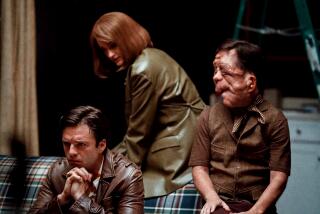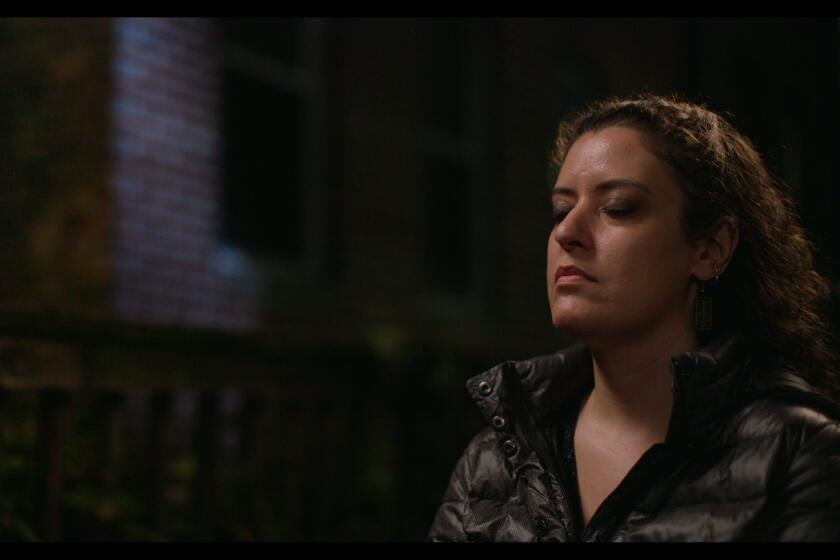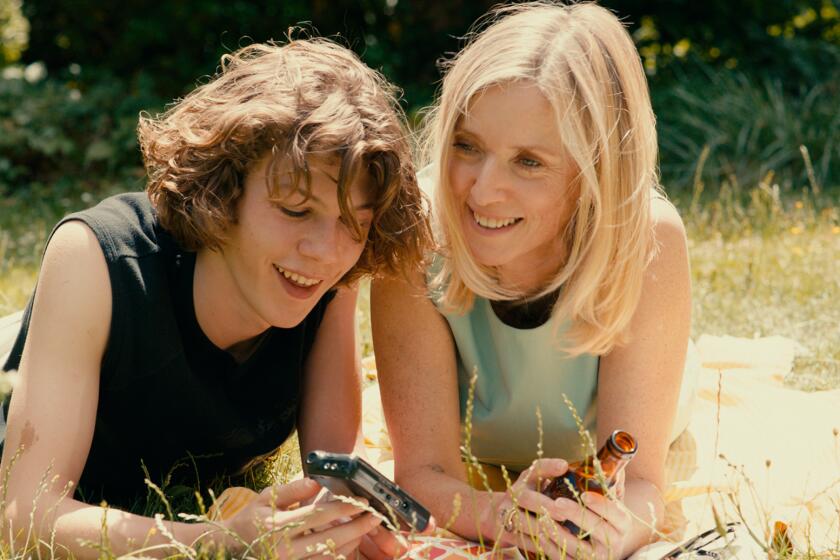The many ways to tell a love story
Young man meets young woman. They court, fall for each other and eventually split up. Told as a postmortem patchwork of emotions and memories, “(500) Days of Summer” skips across the life of a fleeting relationship, with all of its disagreements, deep connections and trips to IKEA, lingering moments in private and enthusiasms shared in public. The film manages to be a romance even as it assays a relationship predestined to failure, perhaps being all the more romantic for chasing the effervescence of love in spite of the knowledge of its doom.
The feature debut of music video and commercial director Marc Webb, “(500) Days of Summer” -- yes, the parentheses are part of the title -- is a heady, ambitious mixture, equal parts the angsty smarts of “Annie Hall,” the free-form exuberance and change-up style of the French New Wave and the particularly up-to-the-minute contemporary charms of leads Joseph Gordon-Levitt and Zooey Deschanel.
The film turns downtown L.A. into an unlikely lovers’ playground as the characters played by Deschanel (as the Summer of the title) and Gordon-Levitt go for walks, sing karaoke, sit on benches and eat in diners. Often with just glances and inflections and the awkward shift in posture, the pair -- who previously appeared together in the 2001 rehab drama “Manic” -- slyly convey what is invigorating and infuriating about the pursuit of affection and companionship.
“As soon as you’re trying to show your audience what you’re feeling, you’re sunk,” says Gordon-Levitt of what makes for believable on-screen head-over-heels intensity. “You have to really feel it and then not do anything. I would just watch her, and then let my fake self fall in love with her.”
The film exudes an anything-goes attitude, using split-screens, graphics, animation, a sneakily specific color palette and a packed kit-bag of filmmaking techniques to convey the subjective feelings of falling in love and, later, the emotional aftermath of being dumped. In one of the film’s kickiest moments, a spontaneous dance number erupts to convey an especially memorable morning.
“We literally call it the kitchen sink mentality,” admits Webb. “That’s what it is.” Where it might seem like a bit of directorial indulgence to make a film that swings from one stylistic conceit to another, Webb says it was all on the page from the first moment he saw the script by Scott Neustadter and Michael H. Weber. “I remember when I read the script,” Webb says, “I felt it was really dancing with something interesting. They said something that articulated a feeling. We built on those things.”
The film’s time-tripping structure, jumping across the span of the central relationship as a series of subjective memories, creates an intricate pattern of moments, thoughts of pancakes leading to reminiscences of a specific outfit on an especially sunny day.
The film remains acutely aware of how those recollections are filtered as Gordon-Levitt’s character moves on, putting Deschanel’s Summer behind him.
“His blind date says it, ‘The next time you look back, look again,’ ” Webb explains. “Which is sort of the conceit of the movie. You’re comparing and contrasting, and obviously the nature of memory is very subjective. And it relates to the kitchen sink mentality -- how do you express this from a person’s point of view that is subjective and not necessarily the whole story in an evidentiary way. All these whims and whistles and cartoon birds and dance sequences grow out of the idea he is experiencing this all in his own head.”
“It’s not so much what’s actually happening,” adds Gordon-Levitt. “It’s what it feels like.”
--
--
(BEGIN TEXT OF INFOBOX)
Also
Romantic at heart? Look for these
upcoming movies.
‘The Ugly Truth’: Even as she searches for Mr. Right, a morning show producer is teamed with a handsome, outspoken TV personality. July 24.
‘I Love You, Beth Cooper’: A geeky high school valedictorian tells it like it is in his graduation speech. July 10.
‘Play the Game’: Andy Griffith (with Doris Roberts) gets lucky as a widower who learns dating tricks from his grandson. Aug. 7.
‘The Proposal’: Speaking of age differences, Sandra Bullock’s Canadian book editor forces her younger, much abused assistant (Ryan Reynolds) to marry her so she can stay in the country. June 19.
‘My Life in Ruins’: Nia Vardalos’ Greek American tour guide (above with Alexis Georgoulis) finds love with help from Richard Dreyfuss’ character -- but not actually with him. June 5.
‘Management’: Jennifer Aniston (above with Steve Zahn) stars in the story of two people looking for their purpose in life. May 15.
More to Read
Only good movies
Get the Indie Focus newsletter, Mark Olsen's weekly guide to the world of cinema.
You may occasionally receive promotional content from the Los Angeles Times.











